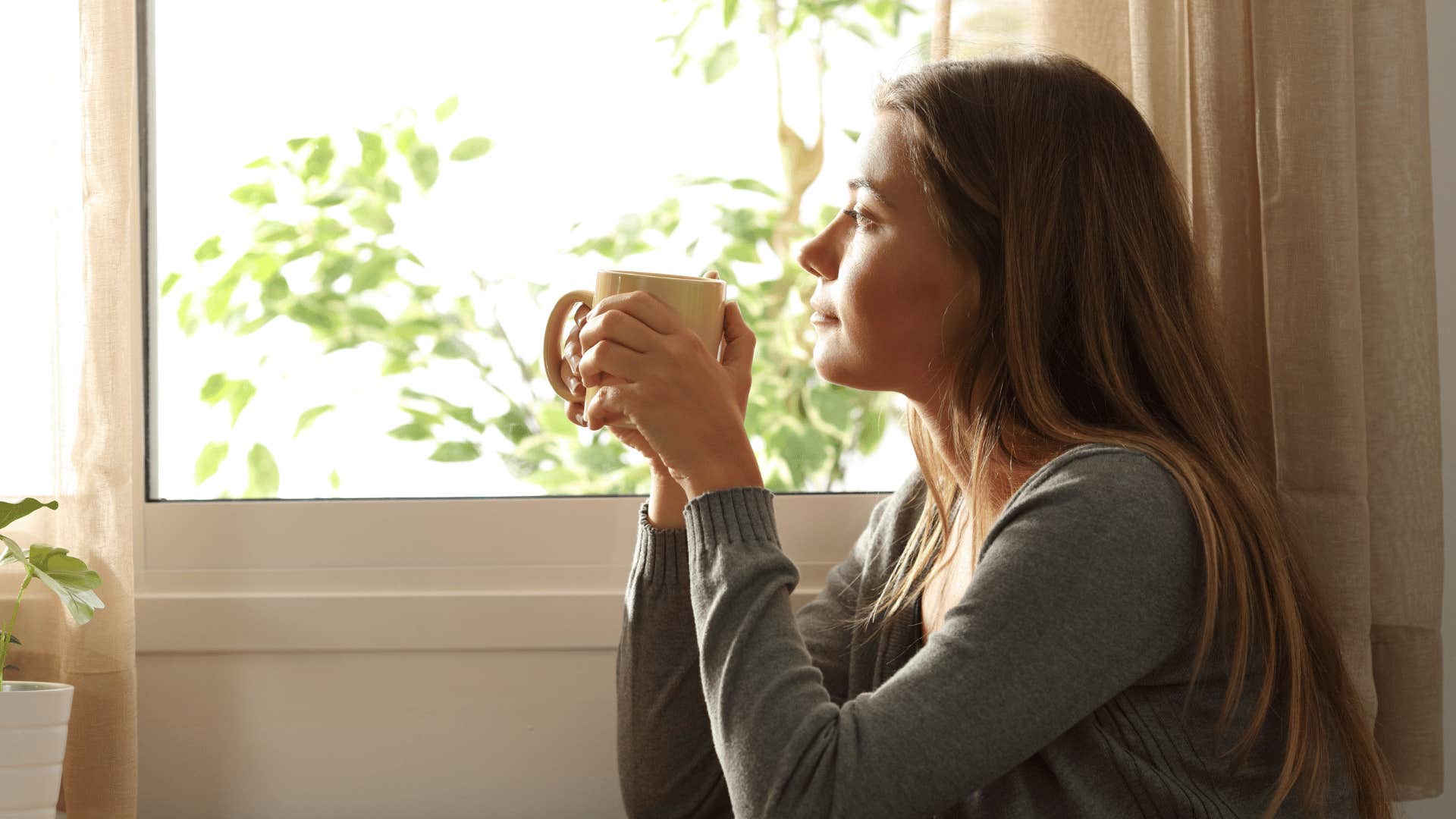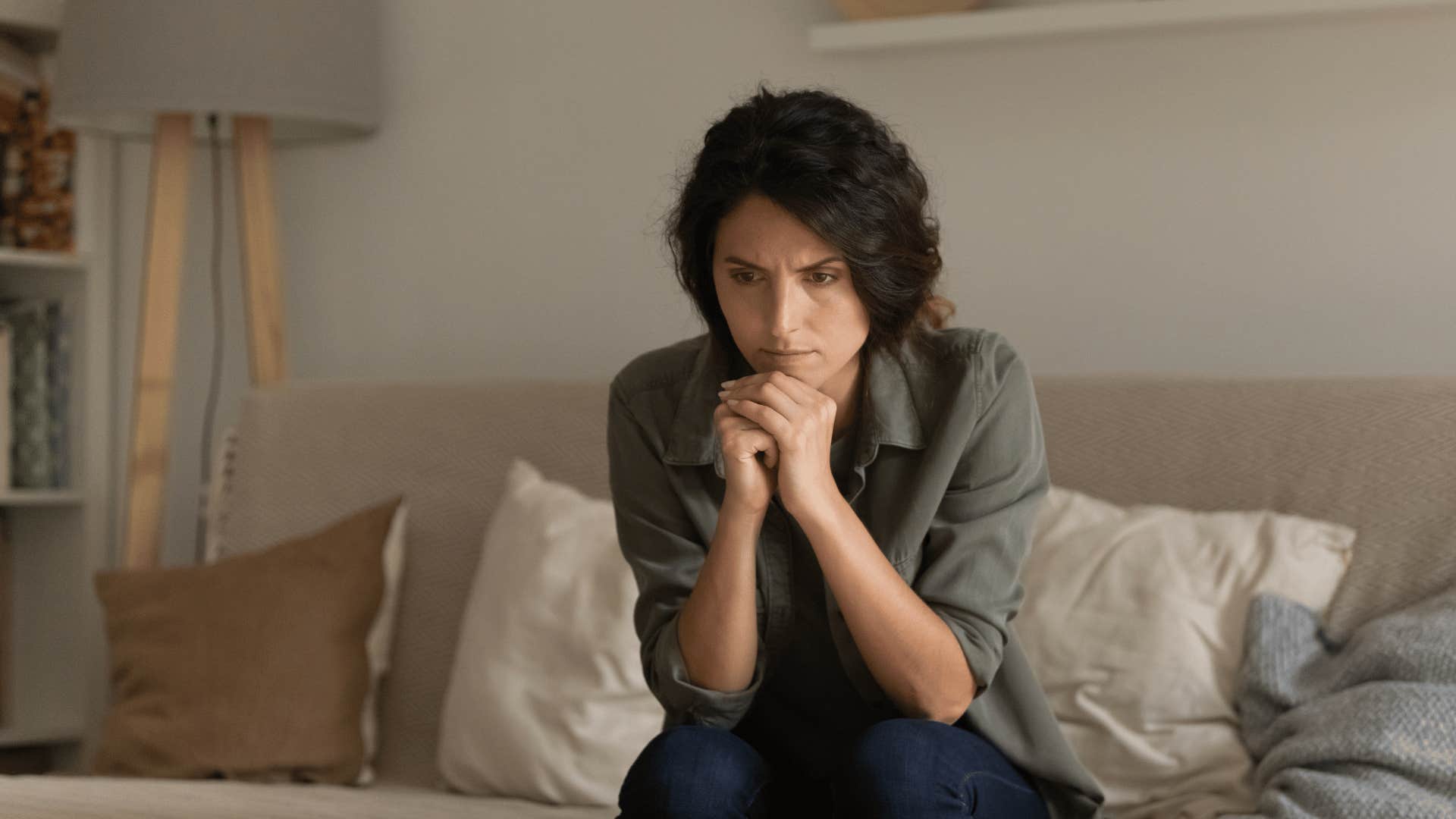If You Grew Up Doing These 11 Things, You've Probably Had To Solve All Of Your Problems Alone
 Kseniya Ivanova | Shutterstock
Kseniya Ivanova | Shutterstock If you have felt emotionally drained or alone for most of your life, you probably learned early on that relying on yourself was the safest option. When kids grow up solving their own problems, they often carry that self-reliance into adulthood, even when it starts to hurt. Struggling to ask for help, keeping emotions bottled up, or feeling uncomfortable depending on others usually does not come from nowhere.
As business adviser Jayson Lasala explains, people who isolate themselves when overwhelmed are often the same ones who were forced to handle too much on their own as children. So what kinds of problems did you have to solve growing up, and how did that shape the way you relate to people now? If you grew up doing these 11 things, there is a good chance you learned early that no one else was coming to help.
If you grew up doing these 11 things, you've probably had to solve all of your problems alone
1. You took on adult responsibilities too early
 PBXStudio / Shutterstock
PBXStudio / Shutterstock
If you raised your siblings or cleaned up after others growing up, you were likely the unofficial parent of your household. You were tasked with keeping things in order and blamed when things turned left.
Because of this, you never thought to share your problems with others, since all the responsibility was placed on you anyway. Instead, you keep any issues you have hidden away.
2. Adults leaned on you emotionally
 fizkes / Shutterstock
fizkes / Shutterstock
Seen as a "natural therapist," you had adults flocking to you left and right with their problems when you were growing up. To them, you gave the best advice and were such a "good listener."
Unfortunately, according to psychologist Nelisha Wickremasinghe, people who trauma dump don't know how to process their emotions and unintentionally negatively impact those around them.
Wickremasinghe says people on the receiving end, "Feel resentful and drained by the emotional 'bombing' and their inability to escape it." Because of this, now that you have grown, people are less likely to come to you during their times of need.
3. You were afraid to ask for help
 Gorodenkoff / Shutterstock
Gorodenkoff / Shutterstock
Growing up, you probably struggled to ask others for help. Even if you needed help, you were too ashamed to ask for it, which led you to figure out problems all on your own. You didn't have any adult guidance in this way.
As an adult, you're likely hyper-independent. You don't depend on anyone, and your motto is likely, "I can do it all on my own." But this mindset is often a trauma response, a defensive mechanism meant to protect you from feeling vulnerable and out of control.
4. You spent a lot of time alone as a child
 Antonio Guillem / Shutterstock
Antonio Guillem / Shutterstock
Human beings are social creatures, yearning to belong and be in the company of others. But what happens when we lose that community or if that community was never given to us in the first place?
While kids who spend time alone certainly reap benefits like personal growth and self-acceptance, the American Psychological Association cites research showing that social isolation leads to depression, poor sleep quality, and cognitive decline. And as an adult, you may still find that you suffer from these conditions.
5. You push people away without meaning to
 fizkes / Shutterstock
fizkes / Shutterstock
You don't know how to let people in. No matter how hard you try, there's a voice in the back of your mind telling you not to let others get too close. But there's a reason for it. As a child, you were shamed for letting people get too close, and you were shamed when confiding in others, all because you were told that there are people worse off than you.
Now that you're older, you still have that voice telling you that people are going to judge you the same way adults did when you came to them with a problem. You shut down and refuse to get close to other people as a result.
According to clinical psychologist Dr. Ryan C. Warner, childhood trauma and neglect can deeply affect a person's attachment. "Childhood relational trauma... is born from being abused or neglected during childhood and can permanently affect people's ability to create healthy relationships," he says. "People who have experienced relational trauma may fear intimacy, have problems trusting others, and feel insecure."
6. You feel uncomfortable expressing emotions
 Monkey Business Images / Shutterstock
Monkey Business Images / Shutterstock
It's human nature to want to connect and have someone to lean on when times get tough. But some people were taught that emotions are problematic or needed to be silenced; they were told they were "too much" or were "too loud."
However, silencing those emotions only leads us to be scared of them. This then leads to never sharing our problems because of the fear of judgment. Psychotherapist Katherine Cullen adds that, according to research, suppression of emotions leads to greater stress, making your toxic suppression a whole lot worse.
7. You rely on self-soothing instead of support
 Miljan Zivkovic / Shutterstock
Miljan Zivkovic / Shutterstock
When you're in conflict, what do you do? Do you go to your loved ones for help, or do you self-soothe? While self-soothing in itself isn't such a bad thing, doing so frequently and refusing to seek help from others is unhealthy.
It shows a lack of trust in others and in their ability to help you. More than that, it shows just how little support you had growing up.
8. You minimize your own problems
 fizkes / Shutterstock
fizkes / Shutterstock
When we belittle our problems, it's likely because other people did it first. You might be thinking it's not that bad; after all, sometimes our problems are truly insignificant. But that would be incorrect. The Canadian Counselling and Psychotherapy Association writes, "Constantly belittling, threatening or ignoring children can be as damaging to their mental health as... abuse."
As a child, the neglect you faced made it harder for you to express yourself or verbalize your problems, damaging your ability to open up to others. As you got older, you likely found yourself having a difficult time letting people in out of fear of them disrespecting you.
9. You were called wise for your age
 Dean Drobot / Shutterstock
Dean Drobot / Shutterstock
As a child, if you talked to an adult and were told, "You're so wise for your age," on the surface, it may have seemed like a stellar compliment. It might have convinced you that you were mature and competent.
While this may have been true, being wise for your age shows just how much you were forced to grow up quickly. It highlights just how much you relied on yourself and how greatly the adults around you failed you.
According to licensed professional counselor Jessica MacNair, "Children dealing with trauma have to learn to escape a threat and make themselves as useful as possible, and this can be confused with signs of maturity." But, adds MacNair, being resourceful in this way is "often mistaken for maturity when it's not related to maturity at all."
10. You struggle to regulate emotions under stress
 fizkes / Shutterstock
fizkes / Shutterstock
As an adult, having outbursts isn't a normal response to difficult situations, nor is it effective in keeping your emotions in check. But it's not your fault.
Research found that children who had experienced severe emotional abuse as infants or physical abuse as toddlers were likely to be aggressive, which could explain why you can't seem to keep calm in tense situations.
If your parents neglected you and dismissed your problems, you were probably forced to figure things out on your own. And because of being forced to solve your own problems as a child, your brain development was a bit stunted.
11. You feel uncomfortable relying on anyone, even when they offer help
 Endless luck | Shutterstock
Endless luck | Shutterstock
When you grow up solving all of your problems alone, depending on someone else can feel deeply unsettling. Even when people genuinely offer help, a part of you may tense up or look for a reason to decline. It is not that you do not appreciate support; it is that relying on others never felt safe or reliable when you needed it most.
As a child, you probably learned that help came with strings attached, disappointment, or judgment. Maybe adults promised support and did not follow through, or maybe asking for help led to guilt, shame, or being told to handle it yourself. Over time, your brain adapted by deciding it was easier and safer to depend on no one but you.
In adulthood, this means insisting you are “fine” even when you are overwhelmed. You feel uneasy accepting favors, delegating tasks, or leaning on partners and friends during hard times. Independence became your armor, even when it starts to feel exhausting.
Learning to accept help later in life feels like giving up control, not gaining support. But that discomfort is a learned response from growing up without consistent backup. Recognizing this pattern is often the first step toward unlearning the belief that you have to do everything alone to be safe.
Marielisa Reyes is a writer with a bachelor's degree in psychology who covers self-help, relationships, career, and family topics.

